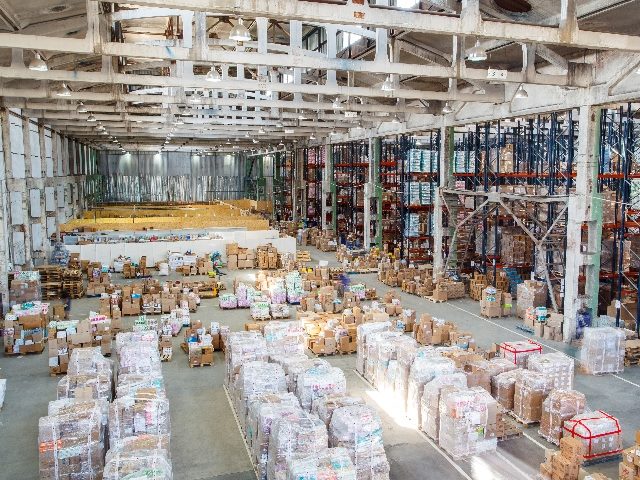The Gist
- Supply chain efficiency boost. Generative AI is delivering real ROI by streamlining document processing and reducing errors in global supply chains.
- Automation at scale. Flexport’s AI-powered document parser processes 15,000 documents monthly, saving 80% of the time on manual tasks.
- Future potential. Generative AI applications like voice AI for trucker coordination highlight its growing impact on the logistics sector.
The way our supply chain communicates is a mess. To find out what’s going where, shippers today use faxes, paper contracts and lots of unstructured documents. Errors, delays and lengthy wait times can ensue. If you’ve ever lost an item en route to your home, there’s a good chance this is why.
Generative AI Brings Order to the Supply Chain
Now, generative AI is starting to solve the problem, delivering meaningful returns for those employing it. While the technology’s more glamorous applications (including ultra-smart chatbots) have yet to turn a profit, it’s delivering real ROI for supply chain operators, enabling them to spot errors, triage and communicate faster than they ever could previously.
The early success indicates where the tech might find near-term results — solving these "boring" but valuable problems — as its long-term promise remains just that.
Document Parsing and Automation
Alex Nederlof, engineering director at Flexport, a supply chain technology company, told me the company has aggressively deployed generative AI to make sense of the vast amount of unstructured documents it uses to operate. Shipping contracts can run 40 pages, with rows and subrows, tables and nested subtables, all filled with crucial information. Bills of lading — documents that say what’s in a container and when it will arrive — aren’t standardized and are difficult for traditional computer systems to ingest. All this adds lots of inefficiency (and cost) to the global supply chain.
“We're getting to the end of 2024, and we have physical paper that comes into the office with freight documents that we’re still scanning and keying into computers, which is mental compared to most other industries,” said Nederlof. “We're like the taxi industry, pre-Uber.”
When ChatGPT arrived, Nederlof and his colleagues perked up. The underlying LLM technology became immensely useful once it went multimodal, adding vision capabilities that could examine long documents and parse the information within them. With each successive release — from GPT-3.5 to GPT-4 and eventually GPT-4o — generative AI became better at handling tasks that previously bogged the company down. Nederlof’s team eventually built it directly into Flexport’s technology.
Related Article: Digital Content Supply Chain: The Unsung Hero of Personalization
AI-Driven Efficiency and Future Ambitions
Today, Flexport uses generative AI to examine documents and make sense of them, and input the important information into its systems via an automation layer. Humans check the AI’s work, accounting for the technology’s hallucination problem, before accepting it as final. Then, Flexport’s employees take action when something looks off or requires immediate intervention.
The deployment is already working at scale. Flexport’s AI-powered document parser is processing 15,000 documents per month, saving its operators 80% of the time they’d spend on the same tasks, the company told me. Nederlof is aiming to get to 50% automation by next year, if not more.
“Parsing the document is about five cents on OpenAI with vision and then a couple of prompts,” Nederlof said. “So you go from a document parsing being anywhere between five and 10 dollars to spending five cents, maybe 10 cents, worst case, on the automation. Then a human looking at it at one dollar if they can go fast through the documents.”
Generative AI is particularly useful in customs work, where shippers apply different rules to different items. Flexport, for instance, could get a bill of lading with T-shirts of all sizes, but have to apply different tariffs to adult and children clothing. Previously, humans would have to key in all this data and apply the particular rules — a lengthy process subject to errors — and now AI can make sense of the documents and apply the rules itself.
Beyond Document Parsing: Voice AI and Growth
With the help of the AI, Flexport can grow faster. It’s not using the technology to cut employees. “We're a growth company,” said Nederlof. “We handle more volume. It's that simple.”
Nederlof and his colleagues are now starting to apply the technology to more ambitious projects. One proof of concept they’ve worked on is a voice AI that will call truckers and ask them if they’re available to take on certain jobs.
“They have a real conversation from which we can determine if they're available, when they could pick it up, and a bunch of data points we need to extract,” Nederlof said. “It just puts that into the system, and they book a journey.”
As the much-hyped AI advancements like agents, assistants and human-level intelligence take time — and piles of cash — to develop, it’s these types of applications that will likely keep the field humming, and justify further investment.
“It's so boring, but it is so valuable,” Aidan Gomez, CEO of Cohere, which is working to apply generative AI for business use cases, told me. “People don't understand the actual scale of impact of some of these crucial, banal things. And if we can scale them up, make them more accurate, more reliable, it really is world-changing.”
